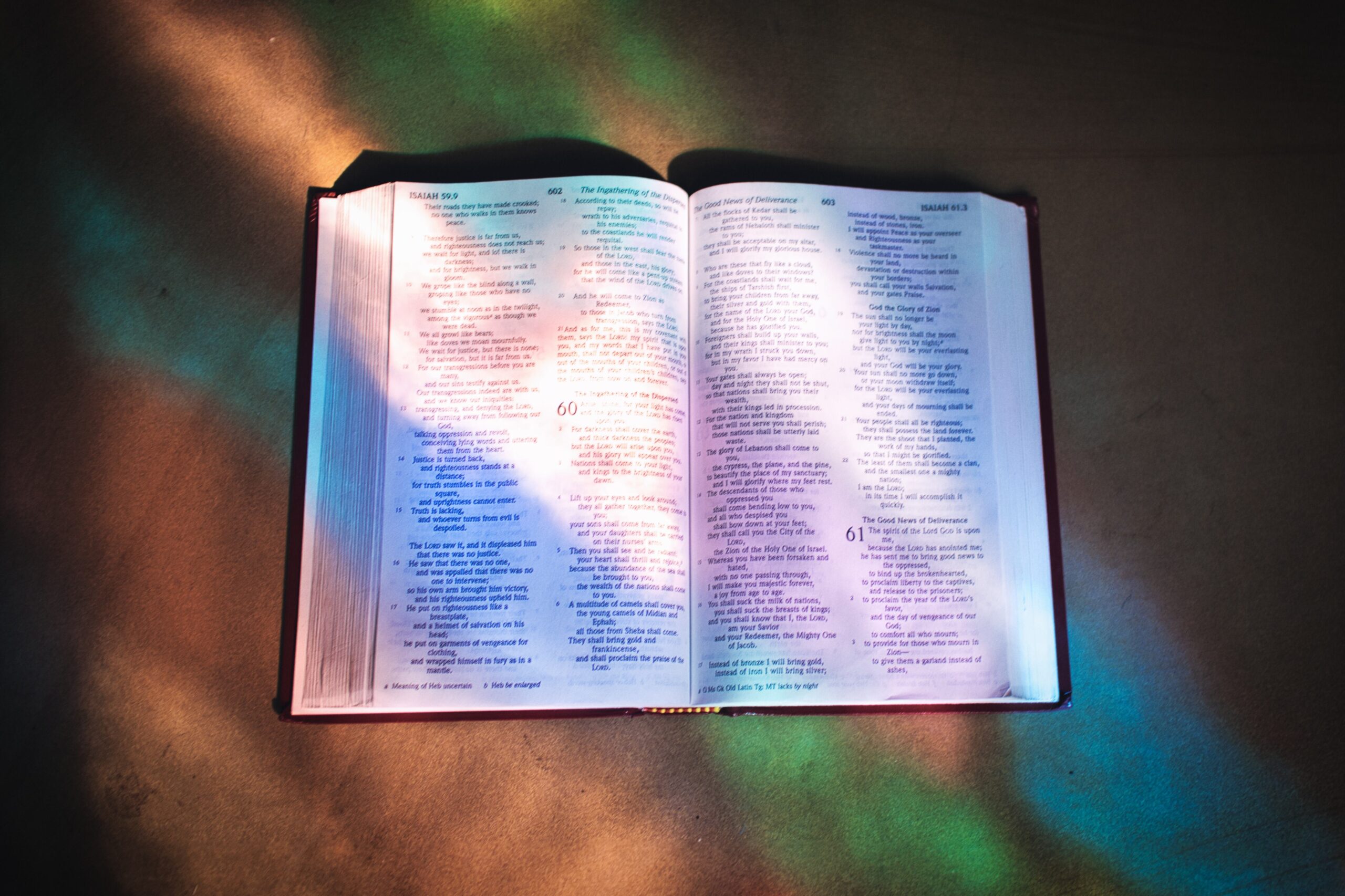The Prophet by Kahlil Gibran is first published in 1923 and has been translated in over 50 languages. Oftentimes, it is mistakenly considered to be a religious book due to its overtones; however, it is not a religious book, but it is spiritual and is heavily influenced by Gibran’s spirituality. Specifically, Gibran is born into an impoverished Christian family but he does not confine himself into one monotheistic religion. As such, on this work, apart from his family’s Maronite Catholic faith, The Prophet also reflects Sufi mysticism and other religious traditions like Judaism and Islam.
These mixtures of religious influences are evident through all the teachings of Al-Mustafa, the protagonist of the book. For example, Al-Mustafa shared that love is sufficient unto love that equates love as both the be- and end-all, much like on how it is viewed in Christianity.
When you love you should not say, “God is in my heart,” but rather, “I am in the heart of God.”
And think not you can direct the course of love, for love, if it finds you worthy, directs your course.
The aforementioned extract came from The Prophet which the theme may be cross-referenced to the Moslem teachings where they viewed true love is a part of Allah’s love and the path to attain it must be through Allah.
As observed, Al-Mustafa’s insights about various aspects of human reflects Gibran’s religious traditions and beliefs. Through understanding this, we may infer that an inter-religious concepts are at play establishing the fact that the religious traditions that influenced Gibran is based on a fundamental unity of all religions. Hence, it manifests how Gibran’s religious beliefs and spirituality is universal and not only confined into one belief system.
The Prophet refers to the protagonist Al-Mustafa, a wise man who spent 12 years in exile in Orphalese. As he prepares to set sail to his homeland, Al-Mustafa share parting gifts of wisdom to the people of Orphalese that concerns human conditions and ways of living.
The book is comprised of 26 prose poems each of which offered insights on universal issues of life and ways of living. The book is thematically arranged, starting from The Coming of the Ship to The Farewell. In between these two, aspects of humanity have its own dedicated chapters such as On Marriage, On Laws and On Self-Knowledge. The prose poems are concisely written but never failed to share tenets concerning how to best attain or improve a certain aspect of human condition. For example, Al-Mustafa stated that pain is the breaking of the shell that encloses your understanding. It may seem to be a quotable quote, but with this passage the reality of human pain is encapsulated and beautifully described, so readers will not only perceive it as what the text mean, but as something the text made you feel.
Hence, as spiritual and philosophical it may be, The Prophet is an enduring masterpiece that transcends all through generations due to its timeless views as well as how these views still be the truth until today regardless of one’s religion or spirituality.
One of the primary concerns revolving around this book is the conception of God. Gibran wrote on the part entitled On Religion the following:
And if you would know God be not therefore a solver of riddles.
Rather look about you and you shall see Him playing with your children.
And look into space; you shall see Him walking in the cloud, outstretching His arms in the
lightning and descending in rain.
You shall see Him smiling in flowers, then rising and waving His hands in trees.
This extract implicitly described what and who God is on The Prophet. As we interpret this, it is safe to assume that God is an omnipresent spirit who is living amongst us. This God being described in the book serves as a connection to humans to be aware of human conditions and to attain vital virtues such as love and freedom. Thus, God is everything—from the nature to the dark vast heliopause—and He will always be with us no matter what is our ways of living.
Moreover, according to Al-Mustafa, since God is prominent by being an omnipresent spirit, you can experience Him through your own God-like experiences as rooted from mysticism. In this sense, when human established a direct communion to God, they can experience His presence. I agree on this note since there are two vital rationales for this: a) Al-Mustafa’s God reflects every god in every religious and belief system; and b) Al-Mustafa’s conception of God is exclusive to all believers and non-believers through the infusion of various classical religious and spiritual teachings.
Additionally, Al-Mustafa’s view the self and its relationship to God is communal where he stated on On Reason and Passion the following:
And since you are a breath in God’s sphere, and a leaf in God’s forest, you too should rest in reason and move in passion.
This sentence illustrates that there are distributions of partial souls from an entire human soul. Man in this sense serves as an entity of his own soul as well as his own body. God, on the other hand, is a universal spirit that both govern and observe everything. If combine, the self and God forms a direct union through mysticism yielding to the Self as part of God and God as part of every Self, otherwise known as being universally connected to every human. Thus, God rests in the mind and He moves in the air.
As previously stated, The Prophet showcases how diversified the author’s religion and spirituality. Through Al-Mustafa, Gibran effectively shared how religious diversity can take place in our society. Based on the previous analyses regarding Al-Mustafa’s conception of God and Self, it is strongly recommendable to view The Prophet as a revolutionary literary text that promotes unity of all religion. Gibran himself is heavily influenced by various world religions and belief systems leading him to stop confining into a single religion and by that, I agree that this text attempts on bringing timeless teachings of all the religions to aid humanity. In line with this, Al- Mustafa’s view on God promotes an evident positive attitude regarding religious diversity as seen all throughout the book. Generally, this overtone makes the book more influential and less offensive to any religions and followers.
Since we already had a strong foundation about the premise of the book, especially its themes, let us now briefly discuss some of the highlighted virtues; namely, love, work, pain, self- knowledge, religion, and death.
On the aforementioned, there is already a sample extract from On Love. Now, let us add more so we can fathom Al-Mustafa’s teaching about love.
When love beckons to you, follow him, Though his ways are hard and steep.
And when his wings enfold you yield to him,
Though the sword hidden among his pinions may wound you.
Using this extract, we can conclude that the teaching about love pertains to being submissive to it. And since love means being part of God’s heart, it is inferred that Al-Mustafa is attempting to deliver a message where the divine omnipresent power of God will guide you to your own fullness as long as love is concerned.
Next, we have work. In The Prophet, the teaching about it goes like this:
And when you work with love you bind yourself to yourself, and to one another, and to God.
This line concisely presented that work involves being proud of it as it yields the worker to be a part of any advancement happening in the world. Through work, everyone on Earth is connected to each other, especially to God, where God fulfills the role of being a guide. Hence, workers love what they work at due to God and due to the equality it brings to everyone.
Then, let us have pain. On Pain shared with us the following:
Much of your pain is self-chosen.
It is the bitter potion by which the physician within you heals your sick self.
Al-Mustafa first described pain as a breaking of the shell and now he added that pain is self-chosen. These stances made this particular teaching a heart-felt one. The way it handled a harsh truth regarding human pain became its stronghold to convey the significance of pain. Through pain, we can experience pleasure. Pain is no less a guide for it serves as a bitter potion, but this kind of toxin is needed for all human to survive and to experience how it is to be human. The essence of humanity can be pictured as a combination of endless pain and pleasure.
Moving into the next teaching, Al-Mustafa shared self-knowledge as this:
Your hearts know in silence the secrets of the days and the nights.
But your ears thirst for the sound of your heart’s knowledge.
You would know in words that which you have always known in thought.
You would touch with your fingers the naked body of your dreams.
And it is well you should.
Self-knowledge in this sense is an infinite repository of knowledge that everyone innately has. The constant curiosity of human is a sign of self-knowledge by which through endless questions and unlimited discoveries, the self-knowledge continues to flourish. This aspect of humanity is ripe for the unfolding.
Let us now proceed to religion. Based on On Religion, religion is captured through this rhetoric question:
Who can separate his faith from his actions, or his belief from his occupations?
Who can spread his hours before him, saying, “This for God and this for myself; This for my
soul, and this other for my body?”
It was previously mentioned that the book encourages religion diversity, and it is well-observed on this teaching. The description of religion is about the reciprocation of everything you do and God. Where it is stated that it is commendable for you to live your life as a reflection of your own religion. For your God is about you and everything you do.
Lastly, we have death. On Death stated the following:
For life and death are one, even as the river and the sea are one.
This teaching provided a different angle on perceiving death as a human experience. The notion of death as a twin of or a part of life suggests that human must never fear death. Death provides another chance to start anew by returning to where you began—your own melting-pot of life. Life and death are two human experiences required for everyone to had so they can say that they lived their lives to the fullest. Thus, these two are actually in one form and that makes every human equal in the eyes of God or to whomever god they are following.
Overall, based on these teachings from the book, I agree that they are all true regardless of your socio-cultural and religious standpoints. These teachings being rooted from various religions and spiritual beliefs remain true and acceptable even through this society where many changes happened involving religions and belief systems.
As we may recall, it was also mentioned that The Prophet contains mysticism or mystical elements. For instance, the teaching about love that goes on like this: When you love you should not say, “God is in my heart,” but rather, “I am in the heart of God.” or the teaching about reason and passion that goes like this: And since you are a breath in God’s sphere, and a leaf in God’s forest, you too should rest in reason and move in passion, it is of no wonder that mystical elements are evident in the entire book.
These mystical elements reflect the religious influences of Gibran. It is through the incorporation of these elements the religious diversity overtone is best achieved. Hence, it can be concluded that The Prophet’s mysticism lies in every notion Gibran offer regarding the concept of God, Self and Universe. Thus, through the mystical elements God leaves an impression of being the Greater Self who dwell in every individualistic soul.
With the use of a prophet and God, The Prophet sets Al-Mustafa as an allegorical representation of something or of someone. If we investigate this as an allegorical representation of someone, many would agree that Al-Mustafa resembles Jesus Christ. The way Jesus Christ from Christianity shared wisdom to people is similar on how Al-Mustafa converse his teachings towards the people of Orphalese. The manner on how Al-Mustafa talks about the virtues of human condition through the usage of metaphors, symbolisms, and imagery is also observed to the manner of Jesus Christ through his parables. And since, Gibran is born in a Christian family, this Al- Mustafa-Jesus Christ idea can be strengthened.
However, Al-Mustafa can also be interpreted as a representation of the book’s advocacy— religious diversity. Since Gibran is influenced by various religions and his spirituality is clearly captured in the entire book, Al-Mustafa as a unity of all religions and belief systems can also be taken account. Noticing how Gibran attempted to curate all religious teaching and bind them altogether to create a book full of timeless truths is the rest of having Al-Mustafa being framed as an advocacy. Thus, as a religious diversity, Al-Mustafa delivers all the teachings coming from various religions to come up with a more definitive guide that bears no trace of its origins. As a result, everything in this book may be perceived as it is without implying any religion bias or prejudices.
In summary, The Prophet is both engaging and enlightening to read. Both spiritual and philosophical, this book must be strongly recommended to be read by everyone who wishes to continue improving their lives either as primarily based on their religion, spirituality or both. Generally, this book offers insights of human condition that will remain true forever.
Tags: The Prophet, Kahlil Gibran, poetry, prose, human experience, wisdom, LifeThinker
Author: Christian Loid Valenzuela







